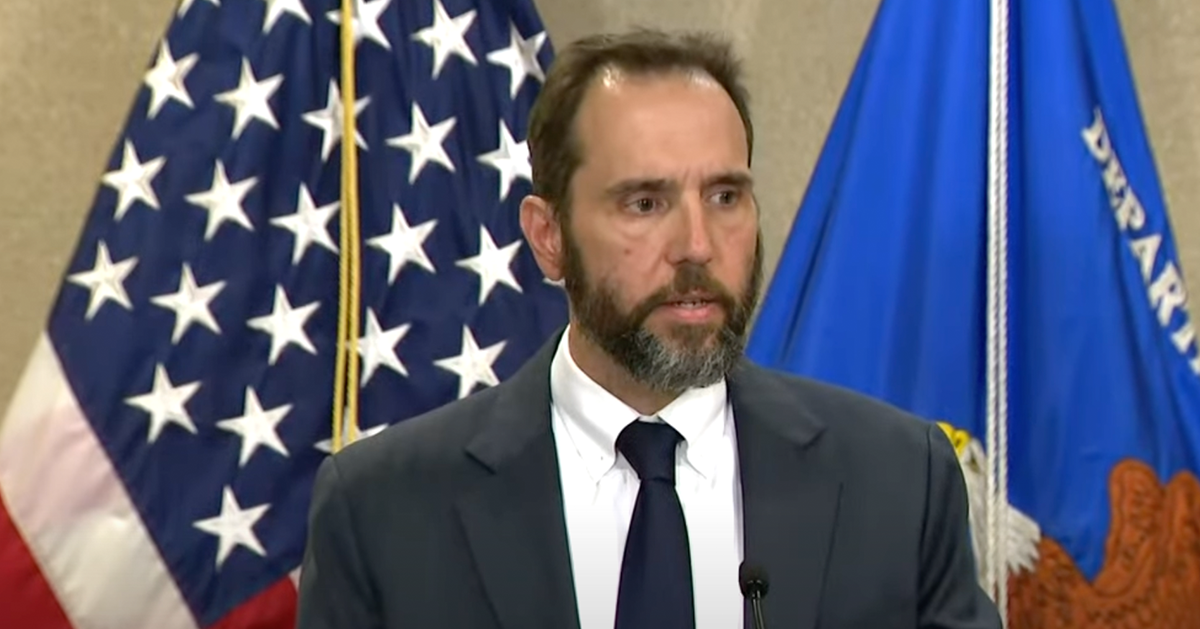Democratic Attorney Criticizes NY Case Against Trump as Legal 'Embarrassment'
The legal proceedings against former President Donald Trump in New York City have sparked significant controversy and debate.
Julian Epstein, a Democratic lawyer and former chief counsel to Democrats on the House Judiciary Committee, has publicly criticized the case, labeling it a disgrace to the legal profession as Fox News reports.
The case revolves around 34 charges against Trump for allegedly falsifying business records to conceal activities that may have violated election law.
During an appearance on Brian Kilmeade Radio on Wednesday, Epstein conveyed his concerns about the underlying basis of the prosecution's case. He argued that the attempt to equate the suppression of negative media coverage with election interference was without merit.
Understanding The Charges and Their Context
The charges were announced last year by Manhattan District Attorney Alvin Bragg, who accused Trump of first-degree falsification of business records. Bragg asserts that these were executed in an effort to further criminal activities specifically designed to influence the outcome of an election.
Trump, maintaining his innocence, has pleaded not guilty to all the accusations lodged against him. These charges are rooted in activities surrounding the 2016 election cycle, although the alleged record-keeping discrepancies took place in 2017.
The crux of the prosecution's argument hinges on a conspiracy that they claim was aimed at illegally bolstering Trump's presidential campaign. This involves a particular New York law that addresses conspiracies to influence election outcomes either by promoting or hindering a candidate.
Epstein's Strong Opinions on the Matter
Reflecting on the broader implications of such legal strategies, Epstein expressed his disillusionment with the misuse of legal standards to frame common political tactics as unlawful. "Suppressing bad stories is not election interference. Everyone does it," he asserted in the radio interview.
He further drew parallels with the Biden campaign during the 2020 election cycle, suggesting that if similar standards were applied uniformly, many campaigns could be accused of analogous practices concerning the suppression of unfavorable coverage.
One of Epstein's most poignant comments was a critique of the timing of the charges. He noted, "the idea that this was election interference, the conduct, the election occurred in November of 2016."
"The conduct in question here, namely, the recordkeeping, and the failure to disclose this, if there was any obligation as a campaign contribution, all occurred in 2017," he added. This timeline raises questions about the direct impact of the alleged actions on the election itself.
Legal Precedents and Political Behaviors
Nondisclosure agreements, often part of the electoral and corporate world, were defended by Epstein as legitimate legal tools not inherently linked to election interference.
This viewpoint suggests a disconnect between legal practices considered standard and the accusations at hand.
Epstein’s critique stems from a belief that the application of the law in this instance could set a concerning precedent for future electoral conduct. It calls into question where the line should be drawn between typical political strategy and actionable legal offense.
As Trump faces these charges, the legal and political communities watch closely. The outcome of this case could influence not just the former president's future but also the interpretation of legal strategies used in political campaigns.
Broader Implications and Future Outlook
The ongoing trial in New York not only scrutinizes Trump's past actions but also holds a mirror up to electoral politics in the U.S. It challenges the boundary between customary campaign tactics and potential legal violations, prompting a nationwide dialogue on the integrity and application of election laws.
Whether or not Trump's actions constituted legal violations, the case underscores the intricate relationship between media management in political campaigns and electoral integrity. This trial could very well shape public perception and legal standards around what is permissible in the competitive arena of political campaigning.
In conclusion, Trump’s trial touches on fundamental issues concerning campaign strategies, legal boundaries, and election laws. Critics like Epstein view the case as a misuse of the legal system that could potentially redefine political legwork as criminal activity. As the courtroom battles unfold, the repercussions of this case will resonate beyond the court, influencing both legal and political norms.





